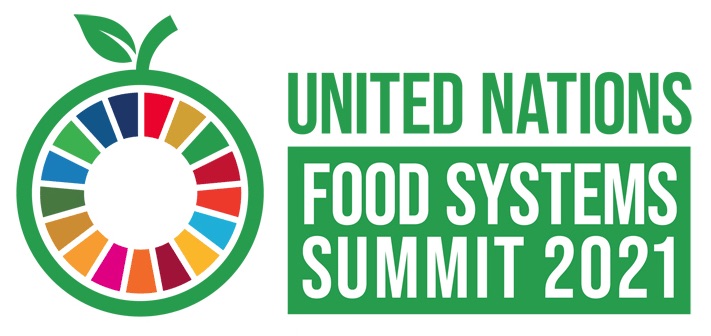The UN Food Systems Summit during the UN General Assembly in New York aims to achieve the Sustainable Development Goals by 2030 along with transforming the global food systems.

Nearly 18% of the planet’s population lives in India, making this summit of paramount importance for our nation. For the UN Food System Summit 2021, India has volunteered to participate in the Action Track 4: Advance Equitable Livelihoods. As a part of this initiative, India will encourage stakeholders in agri-food systems to explore national pathways towards creating sustainable and equitable food systems in India, which can contribute to the transformation of global food systems in order to meet the growing needs of present and future generations. Additionally, India aims to eliminate poverty & hunger, ensuring nutrition security so that all people can eat healthy food, and ensure economic sustainability in food supply.
Along with a rise in population, climate change has an important role to play in the productivity. Drought, floods are rampant in India, and it has direct impact in the food supply chain, right from sowing, production, to supply. Adoption of technology and innovation in the sector has become a necessity but it has not turned to reality. Innovation in developing seeds with sturdy built to shield from unpredictable weather conditions and technologies to support its growth, storage for longer shelf life can help in transforming the food systems.
Biotechnology has been crucial in developing food products that have proven beneficial for the farmers and environment. As per a report by the PG Economics, with the adoption of GM crops between 1996 and 2018, an additional 824 million tonnes of food, feed and fiber has been produced worldwide. Farmers earned an extra US$225 billion in income by growing GM crops during that same period, while reducing the use of agricultural pesticides by 8.6 percent, resulting in a 19 percent cut in associated environmental impacts. The technology also helped reduce carbon emissions equal to taking 15.3 million cars off the road. Because GM crops increase yields, if they had not been available during that time some 24.2 million extra hectares of land would have been destroyed to make way for the same amount of crop production.
In 2002, the introduction and commercialization of Bt (Bacillus thuringiensis) cotton (the only genetically modified crop in India so far) along with huge investments in R&D by private seed companies, ushered a Gene Revolution in the agricultural sector. This led to a breakthrough in cotton production, rising from 13.6 million bales in 2002-03 to 37.5 million bales in 2019-20, surpassing China in 2014-15 to become the largest cotton-producer in the world. The effect of fertilizers, Bt technology and insecticides contributed to 60, 23 and 17 percent of cotton yield, respectively in India. The benefit of Bt technology in cotton is estimated to be USD 84.7 billion (cumulatively between 2002-03 to 2018-19) through savings in imports of cotton as well as extra exports of raw cotton and yarn.
Modern biotechnologies involving gene editing and molecular biology have seen significant opportunities for crop improvement in the cereal crops – rice, maize, wheat and barley. Genome editing has been used to achieve important agronomic and quality traits in cereals. These include adaptive traits to mitigate the effects of climate change, tolerance to biotic stresses, higher yields, more optimal plant architecture, improved grain quality and nutritional content, and safer products. Not all traits can be achieved through genome editing, and several technical and regulatory challenges need to be overcome for the technology to realize its full potential.
Modern agricultural tools have the potential to significantly contribute to achieving the SDGs. Biotechnology can boost the quality and yield of agricultural products, thus achieving SDG-2-end hunger by making food more secure, improving nutrition, and promoting sustainable agriculture. It also plays an essential role in diagnosis and finding the right solutions to pause pests and diseases through several tools, therefore achieving SDG-3-Good Health and Well-Being.
Biotechnology is not a silver bullet, but it can help scale the SDGs. Multifaceted solutions are required for strengthening the food value chain in India. The evidence suggests, however, that improving crops through new tools such as gene editing can play an important role in a more comprehensive food security strategy.
The UNFSS 2021 acknowledges that consumer groups are an important stakeholder in this fight. Therefore, this group has the responsibility to understand and spread awareness on the benefits of nutrient rich food and should actively take part in adopting them. Agriculture biotechnology is just a value addition to get the best product out of the existing crops which can benefit the farmers, people and the planet.
